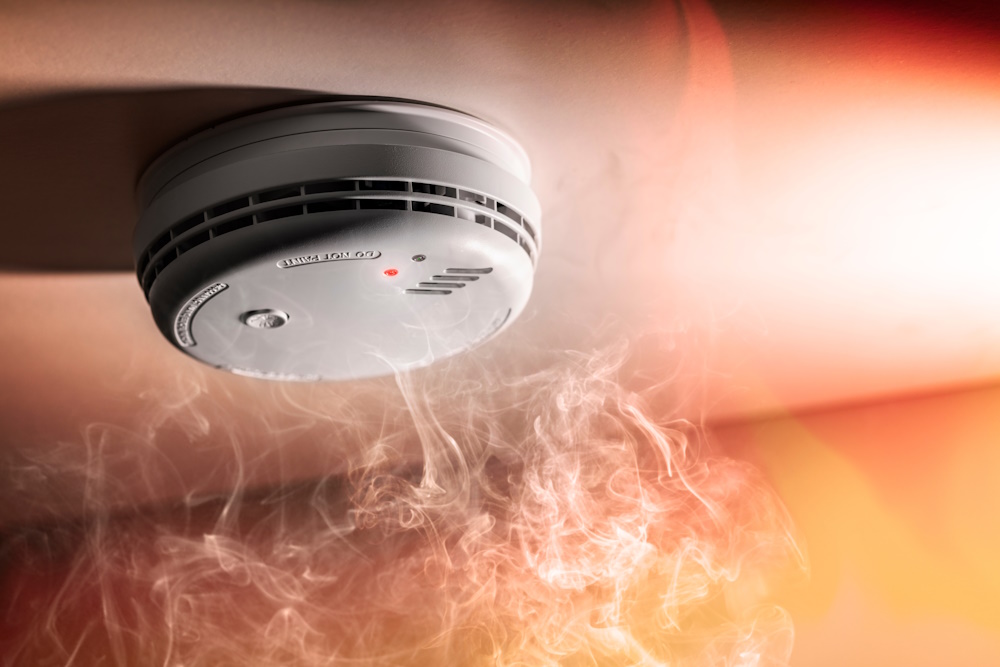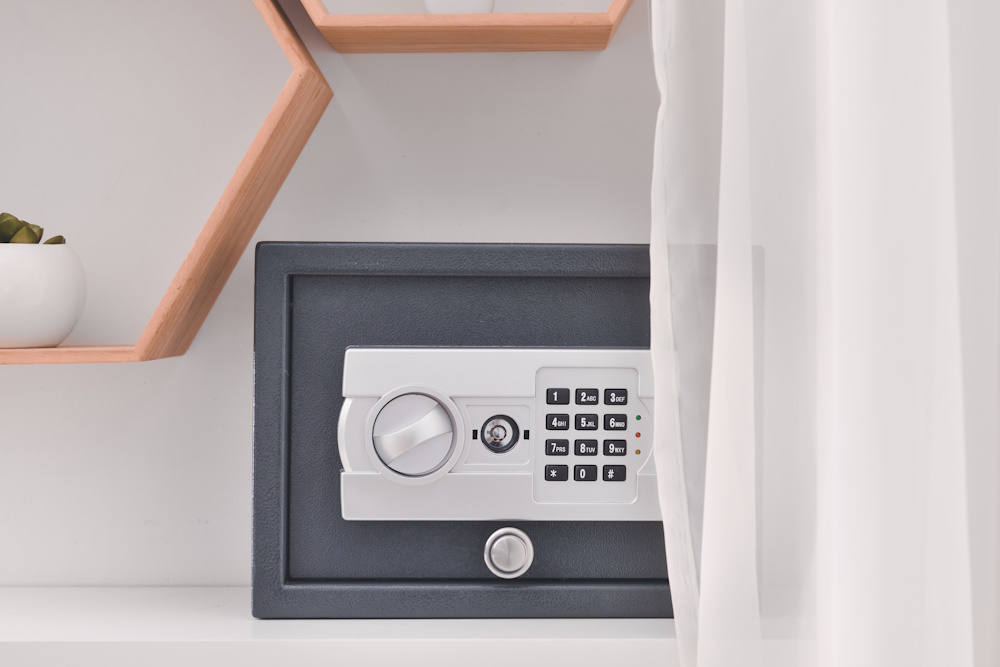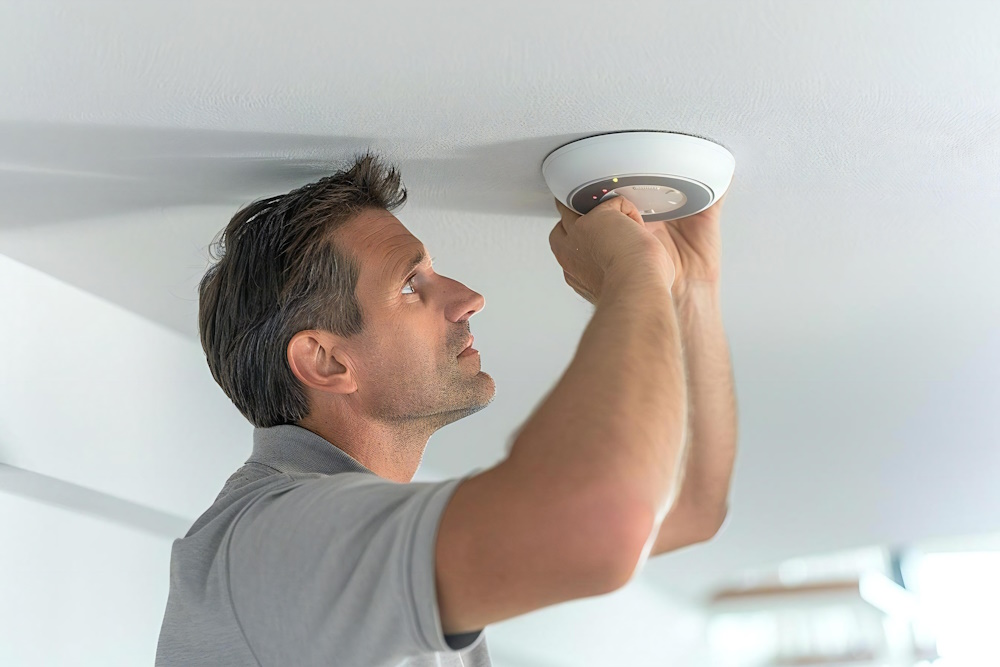A home fire alarm system is an essential piece of equipment that plays a crucial role in securing your dwelling against potential fire accidents. Not only does it increase the safety of your family and property, but it also provides invaluable peace of mind.
The importance of a reliable fire alarm system in homes cannot be overstated. By alerting inhabitants in the initial stages of a fire, it allows for quick action that can prevent injury, loss of life, and extensive property damage.
Understanding Home Fire Alarm Systems
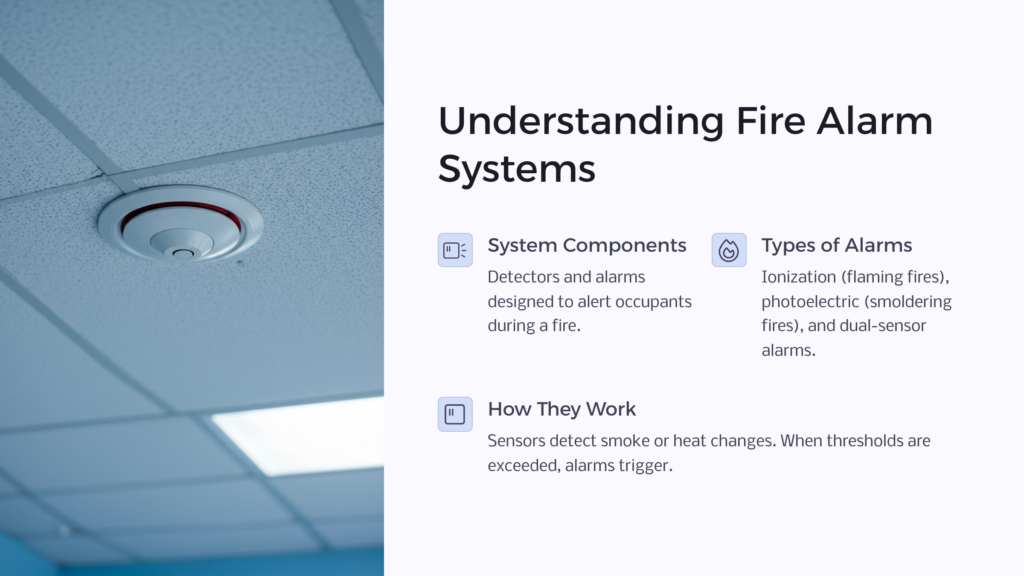
A home fire alarm system comprises detectors and alarms designed to alert occupants in the event of a fire. Its main purpose is to provide early warning to allow adequate time for evacuation and potentially extinguish the fire promptly.
There are three main types of fire alarms: ionization alarms, photoelectric alarms, and dual-sensor alarms. Ionization alarms are effective at detecting flaming fires, while photoelectric alarms better detect smoldering fires. Dual-sensor alarms, containing both ionization and photoelectric sensors, provide comprehensive fire detection.
Fire alarm systems’ operations hinge on detecting changes in the environment. The sensors detect either smoke or changes in heat levels. When these changes exceed preset thresholds, the system triggers an alarm to alert the premises’ occupants.
The Importance of Home Fire Alarm Systems
Fire alarm systems play a vital role in preventing fire-related accidents by providing early warnings that allow swift evacuation and fire suppression.
Fire statistics confirm the significance of early warning systems. In the United States, home fires claim seven lives every day. Alarm systems offer an opportunity to lower this grim statistic since a functioning alarm system doubles the chance of surviving a fire.
Countless testimonies attest to instances where fire alarm systems have made the difference between life and death. These real-life instances emphasize the critical need for functioning alarm systems in homes.
Key Features to Consider in a Home Fire Alarm System
Several key features should guide your decision when selecting an alarm system. These include the alarm’s smoke sensitivity and the type of alert. Some systems provide audio alerts, while others offer visual alerts or both.
Consider if the system can integrate with other home security features. This integration can enhance overall home security since a holistic setup can monitor for various threats.
Further, consider the alarm system’s battery life and power source. Systems that offer long battery life can provide consistent protection even during power outages. The interconnectivity and range matter too, as these determine how well the system can cover your property.
The system should not be too complex to install or maintain. An easy-to-setup system allows for quick installation, while easy maintenance ensures the system remains functional. Verify the system’s reliability by considering the reputation of the manufacturer and the warranty period offered.
Installing Home Fire Alarm System
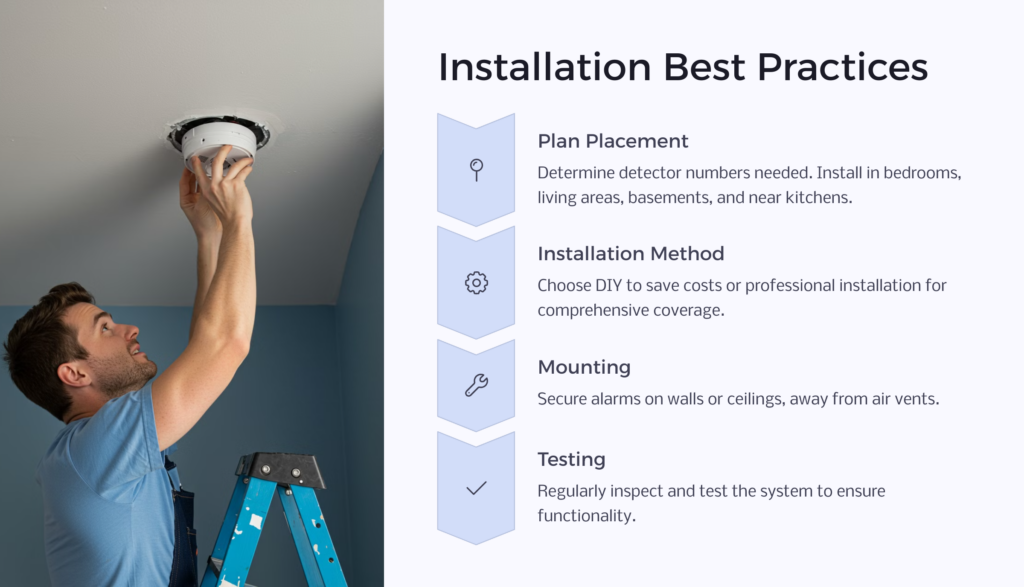
When installing a fire alarm system, start by determining the number of detectors needed. For the optimal function, install alarms in bedrooms, living areas, basements, and near kitchens.
Consider whether to install the system yourself or hire a professional. DIY installation can save on costs, but professional installation guarantees comprehensive coverage and peace of mind.
Installation is straightforward—secure alarms on walls or ceilings, taking care to put them away from air vents which could interfere with their operation. Once installed, regularly inspect and test the system to ensure it remains functional.
Recommendations on Top Smoke Detector Systems in the Market
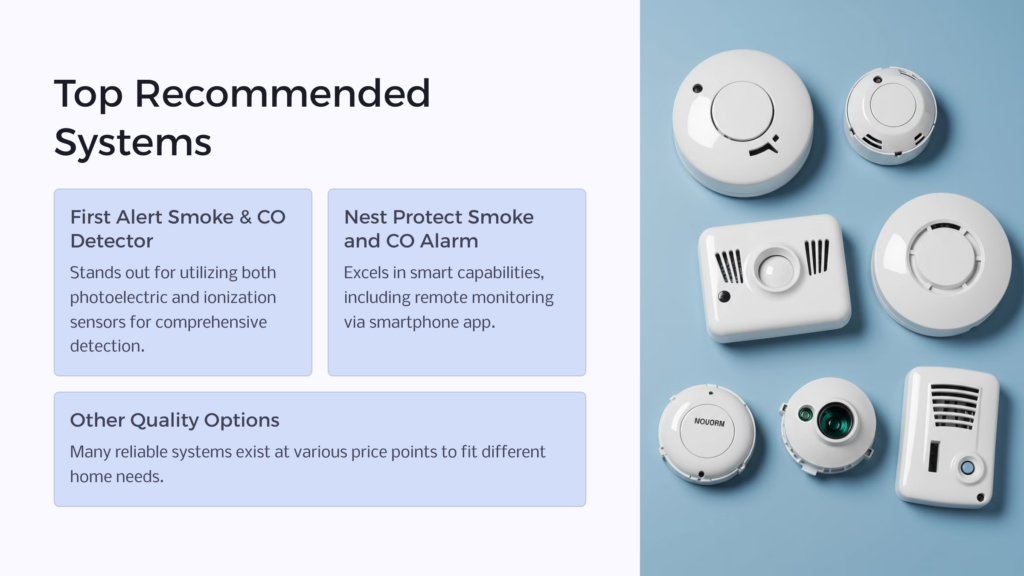
Among the top-rated home fire alarm systems in the market are First Alert’s Smoke Detector and Carbon Monoxide Detector Alarm, and Nest’s Protect Smoke and CO Alarm. While First Alert stands out for its utilization of both photoelectric and ionization sensors, Nest excels in smart capabilities, including remote monitoring.
Home Fire Safety Tips
Beyond installing a reliable smoke alarm, take additional preventive measures to cut the risk of fire. This involves safe cooking practices, careful use of heaters and electrical equipment, and avoiding unattended burning candles. Should the smoke alarm sound, the correct response is to evacuate immediately and call for assistance. Even if you believe it may be a false alarm, it’s best to take action anyway.
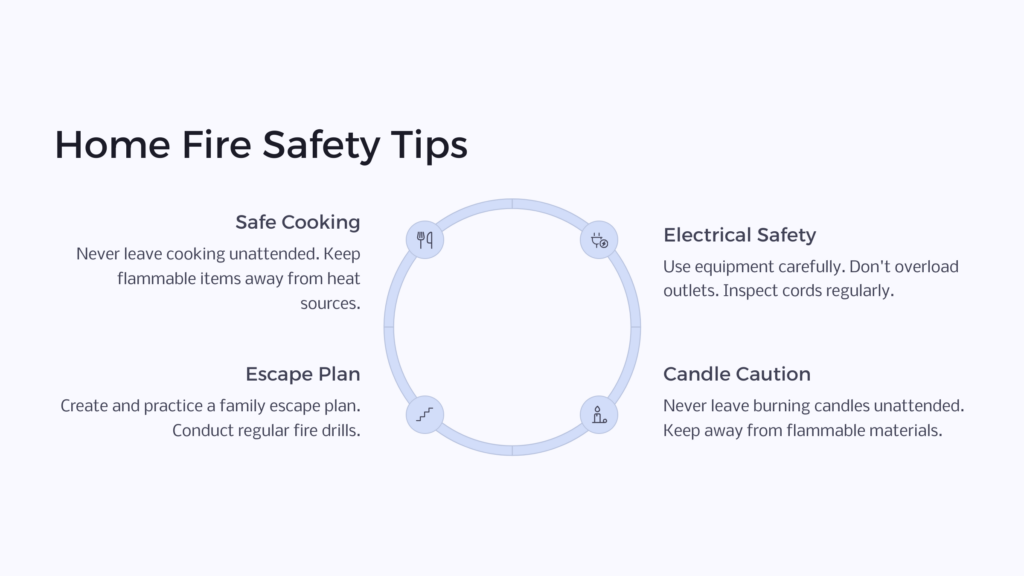
Establishing and practicing an escape plan increases your assurance and is the best practice for home safety. Regular drills acquaint all household members with the best escape routes and procedures, bolstering confidence and preparedness.
Conclusion
In summary, a reliable home fire alarm system is an essential fire safety investment. Smoke detection gives crucial early warnings that can prevent loss of lives and property in a fire occurrence.
It is our hope that you will recognize the importance and benefits of installing a reliable fire alarm system in your homes and make the appropriate investment for your home safety and peace of mind.
Call to Action
If you found this information useful, please share the article with others who might find it helpful. Don’t forget to regularly test and inspect your home fire alarm systems to ensure they function at their optimum. Remember, a proactive approach to safety is the best defense against unexpected tragedies.
